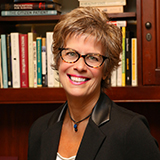 When the Lown Institute first signaled its plan to build a “movement” four years ago, it seemed to be an unlikely group to succeed. The founding conference was attended largely by academic doctors—and no matter how concerned doctors are about what is happening to healthcare, movements are only successful when driven by the people who carry the burden of harms. But from the start, the Lown Institute has recognized that changes within the house of medicine will not be sufficient. As long as industry owns politicians and creates its own rules, it will be impossible to forge substantive change; and to make those changes, there needs to be a movement.
When the Lown Institute first signaled its plan to build a “movement” four years ago, it seemed to be an unlikely group to succeed. The founding conference was attended largely by academic doctors—and no matter how concerned doctors are about what is happening to healthcare, movements are only successful when driven by the people who carry the burden of harms. But from the start, the Lown Institute has recognized that changes within the house of medicine will not be sufficient. As long as industry owns politicians and creates its own rules, it will be impossible to forge substantive change; and to make those changes, there needs to be a movement.
At its fourth annual conference, the institute’s efforts to build that movement appeared to be paying off as it brought together a coalition of individuals and organizations supporting “right care,” in which everyone has access to care, but is not exposed to the harms of profit-driven overtesting and overtreatment.
The Right Care Alliance, which the institute hopes will become an independent, self-supporting entity, marks the tenuous beginning of that hoped-for movement. Joining as speakers and participants were fiery activists who have been harmed by bad medicine, and those who have lived in inner cities without access to care—where life expectancy is worse than Bangladesh. Whether the alliance will be able to sustain those connections among activists and grow as a truly independent organization is yet to be seen, but it has turned a corner in the right direction.
Doctors, community activists, and patients worked respectfully, shoulder-to-shoulder at the conference to come up with goals and plans for the future. Phil Thompson an urban planner and political scientist at the Massachusetts Institute of Technology in Cambridge, said “…we can’t build a movement if everyone shrinks when a doctor walks in a room.” Stephen Martin, a family medicine doctor from rural Massachusetts, said he was glad to see patients active at the conference.
One of the speakers, Eliseo Medina, told conference participants why mass action and the Right Care Alliance are important. Medina, an immigrant from Mexico and former farm worker, said he went to work after 8th grade picking grapes. He worked with Caesar Chavez for 18 years on the California farm worker’s movement. He said “Conditions were terrible,” and he joined Caesar Chavez in the fight to build a union. For that, he said, “We were beaten, jailed, evicted from our housing, and four workers were killed.” But, he said, “Eventually, we won…”
Medina said healthcare is an implicit part of social justice and it needs the same sort of mass action farm workers had to take. He said although Obamacare “is an achievement over what we had…it falls far short of what is needed. Far too many people still don’t have care…This conference is a great opportunity…to discuss strategies and to plan for change…the road will be long and hard and it will seem you’ll never reach your destination. But if you persevere, there will be victories along the way…”
At the conference closing, Vikas Saini, president of the Lown Institute, worried aloud that he too often heard “the gospel of the achievable spoken in the language of the incremental,” and he called on the audience to take action and to join the Right Care Alliance to make real systemic change, saying “We can do better than that.”
Jeanne Lenzer is a medical investigative journalist who sadly has to leave fascinating tidbits about various stories on the cutting room floor. The Backstory is an attempt to archive some of those bits and to provide a bit of insight for the public about the “behind-the-scenes” aspect of investigative journalism.
Competing interests: None declared.
